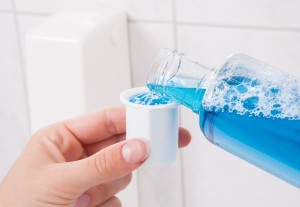No comments yet.
RSS feed for comments on this post.
Sorry, the comment form is closed at this time.
 Most people turn to mouthwash whenever their breath requires a boost, it’s useful and convenient. Some use it to eliminate germs, some for medicinal purposes, while others simply for whitening teeth, or most commonly refreshing their breath. However, with numerous types of mouthwash available in the market today, there has been misunderstanding and confusion of whether to use the product or not. It’s important to note that while daily brushing and flossing are needed for the daily oral routine, adding mouthwash to the routine can be a big plus.
Most people turn to mouthwash whenever their breath requires a boost, it’s useful and convenient. Some use it to eliminate germs, some for medicinal purposes, while others simply for whitening teeth, or most commonly refreshing their breath. However, with numerous types of mouthwash available in the market today, there has been misunderstanding and confusion of whether to use the product or not. It’s important to note that while daily brushing and flossing are needed for the daily oral routine, adding mouthwash to the routine can be a big plus.
Mouthwash kills bacteria that causes tooth decay. The bacteria, which are caught in between the teeth turns your diet’s sugar into acids that corrode that hard outer enamel. This can eventually result in a dental abscess. Swishing mouthwash will also refresh your breath by killing the odor-causing bacteria. Ingredients in mouthwash that kills bad breath include antibacterial agents, fluoride, and germicides.
Besides strengthening your tooth enamel, mouthwashes containing fluoride will also help prevent cavities. Additionally, mouthwash inhibits plaque accumulation and eliminates small detritus that clings between teeth after flossing and brushing.
When you decide to incorporate mouthwash into your daily regimen, be sure to use it in a way that will maximize the results. That implies:
Mouthwashes have passed medication test and are therefore safe. However, there are some precautions to observe including:
Don’t swallow; some have alcohol as an ingredient and therefore children should not be allowed to drink it. If you accidentally swallow disproportionate quantity, seek medical help.
Get dentistry advice; mouthwashes containing fluoride should be used after getting your dentist’s opinion. Excessive intake of fluoride, especially in kids, can permanently damage their teeth.
Don’t forego flossing and brushing; mouthwash might not eliminate bacteria under the gum, and between the teeth efficiently and therefore, it should not be a substitution of your daily flossing and brushing routine.
Individuals with a greater risk of tooth decay should opt for mouthwash containing fluoride. Those who notice bad breath frequently or experience bleeding whenever they are brushing should consider using mouthwash with chlorhexidine or hexetidine.
Mouthwash is a valuable product with various oral hygiene benefits. If you choose to use it, optimize the effects and take the necessary precautions as discussed above. After brushing and flossing, integrating mouthwash is a good way to maximize desired dental care.
No comments yet.
RSS feed for comments on this post.
Sorry, the comment form is closed at this time.